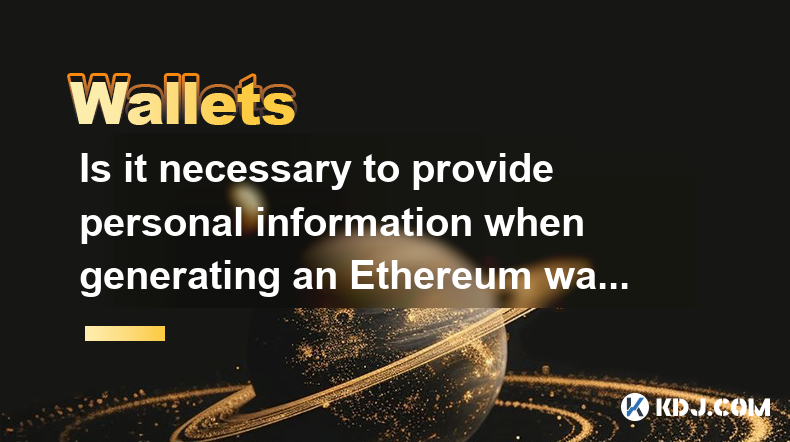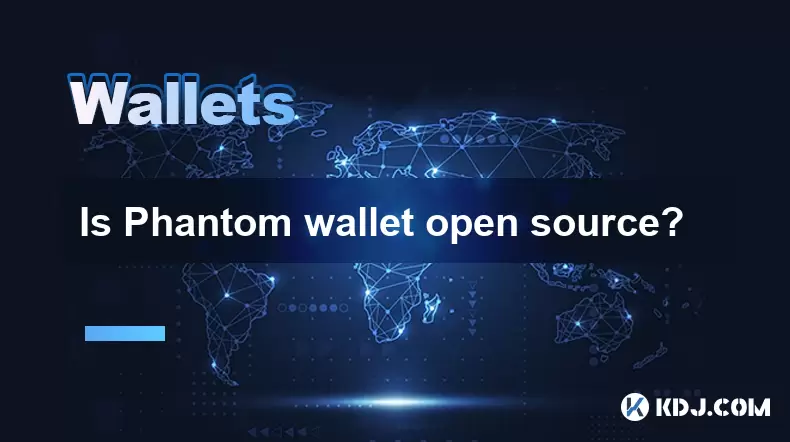-
 Bitcoin
Bitcoin $108,262.4325
-1.40% -
 Ethereum
Ethereum $2,518.2882
-2.94% -
 Tether USDt
Tether USDt $1.0003
-0.01% -
 XRP
XRP $2.2262
-1.71% -
 BNB
BNB $653.9254
-1.55% -
 Solana
Solana $148.1036
-3.11% -
 USDC
USDC $1.0000
0.01% -
 TRON
TRON $0.2829
-1.45% -
 Dogecoin
Dogecoin $0.1639
-4.82% -
 Cardano
Cardano $0.5742
-4.43% -
 Hyperliquid
Hyperliquid $38.9506
-3.95% -
 Sui
Sui $2.9040
-4.34% -
 Bitcoin Cash
Bitcoin Cash $484.8307
-2.62% -
 Chainlink
Chainlink $13.1971
-3.73% -
 UNUS SED LEO
UNUS SED LEO $9.0822
0.51% -
 Avalanche
Avalanche $17.8613
-4.01% -
 Stellar
Stellar $0.2385
-2.26% -
 Toncoin
Toncoin $2.7570
-3.88% -
 Shiba Inu
Shiba Inu $0.0...01145
-3.99% -
 Litecoin
Litecoin $86.9999
-2.43% -
 Hedera
Hedera $0.1538
-3.90% -
 Monero
Monero $313.7554
-2.03% -
 Polkadot
Polkadot $3.3681
-5.08% -
 Dai
Dai $1.0000
0.00% -
 Ethena USDe
Ethena USDe $1.0001
-0.01% -
 Bitget Token
Bitget Token $4.4401
-2.97% -
 Uniswap
Uniswap $6.9644
-8.41% -
 Pepe
Pepe $0.0...09666
-4.79% -
 Aave
Aave $266.5686
-5.04% -
 Pi
Pi $0.4713
-4.95%
Is it necessary to provide personal information when generating an Ethereum wallet address?
Creating an Ethereum wallet requires no personal information; your address is pseudonymous, generated cryptographically. Linking personal data to your wallet compromises security. Choose a wallet type (software, hardware, paper) based on your needs and security priorities.
Mar 18, 2025 at 01:31 pm

Key Points:
- No, you do not need to provide personal information to generate an Ethereum wallet address.
- Wallet addresses are generated using cryptographic algorithms and are pseudonymous.
- Linking personal information to your wallet address compromises your security and privacy.
- Various methods exist for creating Ethereum wallets, each with varying levels of security and user experience.
- Understanding the security implications of different wallet types is crucial for protecting your cryptocurrency.
Is it necessary to provide personal information when generating an Ethereum wallet address? The answer is a resounding no. Generating an Ethereum wallet address doesn't require you to disclose any personal details like your name, address, phone number, or email. This is a fundamental aspect of the cryptocurrency's decentralized and pseudonymous nature. Your interaction with the Ethereum blockchain is primarily through your wallet address, a long string of alphanumeric characters.
The process of generating an Ethereum wallet address involves complex cryptographic algorithms. These algorithms create a unique address based on a randomly generated private key. Your private key is what allows you to access and control the cryptocurrency held in your wallet, while your public key (which derives your wallet address) is what you share to receive payments. This system ensures your personal identity remains separate from your wallet.
Think of your Ethereum wallet address like a postal address. You provide your postal address to receive mail, but that address doesn't directly reveal your identity. Similarly, your Ethereum wallet address is publicly visible on the blockchain, allowing others to send you ETH, but it doesn't inherently reveal who you are. However, linking your identity to your address through other means compromises your privacy and security.
Several methods exist for creating an Ethereum wallet. Software wallets, like MetaMask, are popular for their user-friendliness and browser integration. Hardware wallets, such as Ledger and Trezor, offer the highest level of security by storing your private keys offline. Paper wallets, involving printing your private and public keys, are less convenient but provide a degree of security if managed correctly. Each option presents a different balance of convenience and security.
Choosing the right Ethereum wallet depends on your needs and technical expertise. If you're a beginner, a software wallet like MetaMask offers a good starting point. However, for larger holdings or a higher level of security, a hardware wallet is strongly recommended. Regardless of your choice, never share your private key with anyone, as doing so grants them complete control over your funds.
Protecting your privacy is paramount when using cryptocurrencies. Avoid using platforms or services that request unnecessary personal information during wallet creation. Legitimate services should never require linking your identity directly to your wallet address. Always be wary of phishing scams that attempt to obtain your private keys under false pretenses. Remember, your private key is the only thing that allows you to access your funds.
Understanding the security implications of each wallet type is crucial. Software wallets, while convenient, are vulnerable to malware and hacking if your computer is compromised. Hardware wallets provide a much higher level of security by keeping your private keys offline. Paper wallets, while secure if stored properly, are susceptible to physical damage or loss. Careful consideration of these factors will help you make an informed decision.
Many users wonder about the implications of using exchange-based wallets. While convenient for trading, they offer less control over your private keys as the exchange holds them. This makes you reliant on the exchange's security measures, which can be a significant risk. For long-term storage or large holdings, self-custody through a software or hardware wallet is generally preferred.
It's important to note that while your wallet address doesn't directly reveal your identity, your activity on the blockchain is publicly visible. Anyone can see the transactions associated with your address, including the amounts and addresses involved. However, this information doesn't necessarily link back to your real-world identity unless you explicitly connect it.
The use of privacy-enhancing technologies like mixers or privacy coins is a topic of ongoing discussion within the cryptocurrency community. While these technologies can offer increased anonymity, they also carry potential risks and regulatory uncertainties. Understanding the implications of using these tools is crucial before implementation.
Remember, responsible cryptocurrency usage involves understanding the technologies involved and prioritizing security and privacy. Always conduct thorough research and choose the wallet and security practices best suited to your individual circumstances. Never compromise your private keys, and be wary of suspicious websites or individuals requesting your personal information.
Frequently Asked Questions:
Q: Can I use the same Ethereum wallet address for multiple transactions?
A: Yes, you can use the same Ethereum wallet address for multiple transactions, both sending and receiving ETH. It acts as a persistent identifier for your funds on the Ethereum network.
Q: What happens if I lose my private key?
A: If you lose your private key, you lose access to the funds associated with that wallet address. There is no recovery mechanism for lost private keys, emphasizing the importance of secure storage and backup.
Q: Is it safe to share my Ethereum wallet address?
A: Sharing your Ethereum wallet address is generally safe, as it's analogous to sharing your email address. It allows others to send you ETH, but it doesn't grant them access to your funds unless you share your private key.
Q: Can I generate multiple Ethereum wallet addresses?
A: Yes, you can generate multiple Ethereum wallet addresses using the same software or hardware wallet. This can be useful for organizing funds or enhancing privacy.
Q: What is the difference between a public and private key?
A: Your public key generates your Ethereum wallet address, which is shared publicly to receive funds. Your private key is kept secret and allows you to access and control the funds in your wallet. Never share your private key.
Disclaimer:info@kdj.com
The information provided is not trading advice. kdj.com does not assume any responsibility for any investments made based on the information provided in this article. Cryptocurrencies are highly volatile and it is highly recommended that you invest with caution after thorough research!
If you believe that the content used on this website infringes your copyright, please contact us immediately (info@kdj.com) and we will delete it promptly.
- Bitcoin's Pattern Break: Are HODLers the Key to the Next Surge?
- 2025-07-04 18:50:12
- Bitcoin Price, Trump's Bill, and the $150K Dream: A NYC Take
- 2025-07-04 19:50:12
- Ethereum, LILPEPE, and the July Bounce: Will Pepe Steal ETH's Thunder?
- 2025-07-04 19:10:12
- Binance Institutional Loans: Unlocking 4x Leverage and Zero Interest for Whales
- 2025-07-04 19:15:12
- Bitcoin Bull Run: Analysts Eye Peak in Late 2025?
- 2025-07-04 19:20:13
- Pepe Indicators, Bullish Forecast: Can the Meme Coin Rally?
- 2025-07-04 19:25:12
Related knowledge

How to cancel a pending transaction in Phantom wallet?
Jul 03,2025 at 07:21pm
Understanding Pending Transactions in Phantom WalletA pending transaction in the Phantom wallet occurs when a user initiates a transfer or interaction with the Solana blockchain, but it hasn't yet been confirmed by the network. This can happen due to various reasons such as low transaction fees, network congestion, or incorrect gas settings. It's import...

How to see the estimated value of my tokens in Phantom wallet?
Jul 04,2025 at 12:21am
What is Phantom Wallet?Phantom wallet is one of the most popular cryptocurrency wallets designed for the Solana blockchain. It allows users to store, send, receive, and manage various tokens built on Solana, including SPL tokens and NFTs. The wallet offers a user-friendly interface, making it accessible for both beginners and advanced users in the crypt...

How to lock my Phantom wallet extension?
Jul 03,2025 at 11:14am
What Is the Phantom Wallet and Why Lock It?The Phantom wallet is a popular non-custodial cryptocurrency wallet designed for interacting with the Solana blockchain. Supporting both browser extensions and mobile apps, Phantom allows users to store, send, receive, and stake SOL tokens, as well as interact with decentralized applications (dApps). Securing y...

Does Phantom wallet offer two-factor authentication (2FA)?
Jul 03,2025 at 09:00am
Understanding Phantom Wallet and Its Security FeaturesPhantom wallet is a widely used non-custodial cryptocurrency wallet that supports the Solana blockchain. It allows users to store, send, receive, and interact with decentralized applications (dApps) seamlessly. As security is a top priority for any crypto wallet user, security features like two-facto...

What is "rent" on Solana and how does it affect my Phantom wallet?
Jul 02,2025 at 08:35pm
Understanding 'Rent' on SolanaIn the context of Solana, the term 'rent' refers to a storage fee that users pay for maintaining data on the blockchain. Unlike Ethereum, where storage costs are paid once via gas fees during contract deployment, Solana implements a recurring cost model to ensure efficient usage of network resources. This means that any acc...

Is Phantom wallet open source?
Jul 03,2025 at 12:29am
What is Phantom Wallet?Phantom wallet is a non-custodial cryptocurrency wallet primarily designed for the Solana blockchain. It allows users to store, send, receive, and interact with decentralized applications (dApps) on the Solana network. The wallet is available as a browser extension and mobile application, offering a seamless experience for both be...

How to cancel a pending transaction in Phantom wallet?
Jul 03,2025 at 07:21pm
Understanding Pending Transactions in Phantom WalletA pending transaction in the Phantom wallet occurs when a user initiates a transfer or interaction with the Solana blockchain, but it hasn't yet been confirmed by the network. This can happen due to various reasons such as low transaction fees, network congestion, or incorrect gas settings. It's import...

How to see the estimated value of my tokens in Phantom wallet?
Jul 04,2025 at 12:21am
What is Phantom Wallet?Phantom wallet is one of the most popular cryptocurrency wallets designed for the Solana blockchain. It allows users to store, send, receive, and manage various tokens built on Solana, including SPL tokens and NFTs. The wallet offers a user-friendly interface, making it accessible for both beginners and advanced users in the crypt...

How to lock my Phantom wallet extension?
Jul 03,2025 at 11:14am
What Is the Phantom Wallet and Why Lock It?The Phantom wallet is a popular non-custodial cryptocurrency wallet designed for interacting with the Solana blockchain. Supporting both browser extensions and mobile apps, Phantom allows users to store, send, receive, and stake SOL tokens, as well as interact with decentralized applications (dApps). Securing y...

Does Phantom wallet offer two-factor authentication (2FA)?
Jul 03,2025 at 09:00am
Understanding Phantom Wallet and Its Security FeaturesPhantom wallet is a widely used non-custodial cryptocurrency wallet that supports the Solana blockchain. It allows users to store, send, receive, and interact with decentralized applications (dApps) seamlessly. As security is a top priority for any crypto wallet user, security features like two-facto...

What is "rent" on Solana and how does it affect my Phantom wallet?
Jul 02,2025 at 08:35pm
Understanding 'Rent' on SolanaIn the context of Solana, the term 'rent' refers to a storage fee that users pay for maintaining data on the blockchain. Unlike Ethereum, where storage costs are paid once via gas fees during contract deployment, Solana implements a recurring cost model to ensure efficient usage of network resources. This means that any acc...

Is Phantom wallet open source?
Jul 03,2025 at 12:29am
What is Phantom Wallet?Phantom wallet is a non-custodial cryptocurrency wallet primarily designed for the Solana blockchain. It allows users to store, send, receive, and interact with decentralized applications (dApps) on the Solana network. The wallet is available as a browser extension and mobile application, offering a seamless experience for both be...
See all articles

























































































